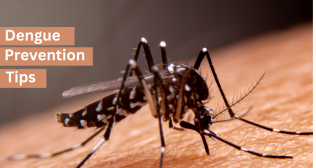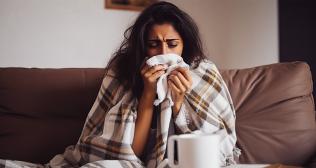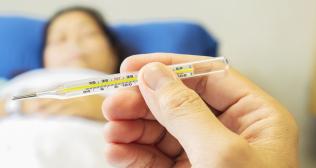
What Is Mumps Disease: Symptoms, Diagnosis, and Treatment
Introduction
Mumps is a highly contagious viral infection that causes swelling and tenderness of the salivary glands (the parotid glands) situated below the ears on each side of the face. Once a common childhood illness, its incidence has significantly reduced due to widespread vaccination programs. However, outbreaks can still happen, especially in regions with low vaccination rates or populations with waning immunity. Vaccinated people can also get mumps, with milder symptoms and fewer complications. Most children recover fully from mumps within a few weeks and are unlikely to be affected ever again.
Risk Factors for Mumps
Mumps primarily affects children and adolescents who are not vaccinated or have not previously been infected. The risk factors of contracting the mumps virus are:
- Age: While mumps can affect individuals of any age, it’s more common in children aged 2–12.
- Vaccination Status: Individuals not vaccinated against mumps are at a higher risk of contracting the virus.
- Close Contact: Mumps spreads through respiratory droplets from coughing, sneezing, or talking with infected individuals. Close contact with an infected person increases the chances of infection.
- Crowded Environments: Settings such as schools, colleges, dormitories, and daycare centers, where many people are in close proximity, increase the risk of mumps.
- Immunity Status: People with weakened immune systems due to certain medical conditions (such as HIV/AIDS) or medications (such as corticosteroids or chemotherapy) are at higher risk of contracting mumps and experiencing severe complications.
- Travel: Traveling to areas where mumps are more common or where outbreaks are occurring increases the risk of exposure to the virus.
- Poor Hygiene: Poor hygiene practices, such as not washing hands frequently, can spread the infection.
- Season: Mumps outbreaks can occur more frequently during certain seasons, although the virus can spread year-round. Research indicates that the incidence of mumps increases with the rise in temperature and humidity.
- Genetic Factors: Some individuals may have a genetic predisposition that makes them more susceptible to mumps infection.
- Compromised Salivary Glands: Conditions or treatments that compromise the function of the salivary glands might increase the risk of complications from mumps infection.
Mumps Symptoms to Look For
The onset of mumps is characterized by nonspecific and mild symptoms like those of a common cold. Many people don’t exhibit any symptoms and are unaware they are infected. The mild initial symptoms include:
- Mild to moderate fever
- Pain or discomfort while chewing or swallowing, leading to loss of appetite
- Mild headache
- Generalized muscle aches and fatigue
The incubation time of the virus ranges from seven to 25 days. A few days after the onset of mild symptoms, swelling and tenderness of one or both glands occurs, and, in some cases, there is progression to severe complications that include:
- Orchitis: Inflammation of the testicles, characterized by pain, swelling, and tenderness in one or both testicles
- Oophoritis: Inflammation of the ovaries, causing pain in the lower abdomen, fever, and sometimes nausea and vomiting
- Meningitis: Inflammation of the protective membranes covering the brain and spinal cord, causing headache, fever, stiff neck, sensitivity to light, confusion, and, in severe cases, seizures and coma
- Encephalitis: Inflammation of the brain tissue, characterized by headache, fever, confusion, drowsiness, seizures, and, in severe cases, coma
- Deafness: Mumps can lead to sensorineural hearing loss caused by inner ear or auditory nerve damage
- Pancreatitis: Inflammation of the pancreas, causing abdominal pain, nausea, vomiting, and fever
- Arthritis: Inflammation of the child’s joints
- Thyroiditis: Inflammation of the thyroid gland
- Miscarriage: Pregnant women who contract mumps may be at risk of a miscarriage
How Are Mumps Diagnosed?
Diagnosing mumps involves a combination of clinical evaluation, patient history, and laboratory tests.
- Physical Examination: Healthcare providers check for typical swelling and tenderness of the salivary glands.
- Medical History: They inquire about any recent exposure to mumps cases and vaccination history.
- Laboratory Tests: They may prescribe blood tests, urine sample testing, or throat swabs to confirm the presence of the mumps virus or antibodies.
Mumps Disease Treatment
As mumps is a viral infection, it doesn’t respond to antibiotics. There is no specific treatment for mumps disease; most people recover within 3 to 10 days. Steps you can take to alleviate symptoms and prevent complications include:
- Getting plenty of rest helps the body fight off the infection more effectively
- Staying hydrated is crucial, especially if there is a fever
- Over-the-counter painkillers, like acetaminophen or ibuprofen, can reduce fever and relieve discomfort
- Gargling with warm salt water
- Eating soft, easy-to-chew foods
- Avoiding acidic foods that increase salivation
- Using throat soothers like ice pops
- Applying cold packs to swollen glands can help reduce pain and inflammation
- Infected individuals should be isolated, especially during the first few days of illness when they are most contagious
- Hospitalization might be required for some severe cases
- Aspirin should not be given to children with mumps as they can develop a fatal condition called Reye’s syndrome, which leads to liver failure, swelling of the brain, and even death
Keeping Mumps Away
- Vaccination remains the most effective way to safeguard children from mumps and its complications. The MMR vaccine, typically given in two doses during childhood, provides immunity against measles, mumps, and rubella.
- Non-vaccinated adults should consider getting vaccinated, particularly if they’re at a higher risk of exposure.
- Practicing proper hand hygiene, covering coughs and sneezes, and avoiding sharing utensils or drinks can help reduce the risk of transmission.
In conclusion, while mumps may not be as prevalent as before, it remains a concern due to the potential for outbreaks and complications. Understanding the risk factors, symptoms, diagnosis, and treatment options is essential for effectively managing this contagious viral infection. Vaccination, good hygiene practices, and prompt medical attention are critical as preventive and control strategies.
Popular Searches :
Hospitals: Cancer Hospital in Delhi | Best Heart Hospital in Delhi | Hospital in Amritsar | Hospital in Ludhiana | Hospitals in Mohali | Hospital in Faridabad | Hospitals in Gurgaon | Best Hospital in Jaipur | Hospitals in Greater Noida | Hospitals in Noida | Best Kidney Hospital in Kolkata | Best Hospital in Kolkata | Hospitals in Rajajinagar Bangalore | Hospitals in Richmond Road Bangalore | Hospitals in Nagarbhavi Bangalore | Hospital in Kalyan West | Hospitals in Mulund |
Doctors: Dr. Rana Patir | Dr. Rajesh Benny | Dr. Rahul Bhargava | Dr. Jayant Arora | Dr. Anoop Misra | Dr. Manu Tiwari | Dr. Praveer Agarwal | Dr. Arup Ratan Dutta | Dr. Meenakshi Ahuja | Dr. Anoop Jhurani | Dr. Shivaji Basu | Dr. Subhash Jangid | Dr. Atul Mathur | Dr. Gurinder Bedi | Dr. Monika Wadhawan | Dr. Debasis Datta | Dr. Shrinivas Narayan | Dr. Praveen Gupta | Dr. Nitin Jha | Dr. Raghu Nagaraj
Specialities: Heart Lung Transplant | Orthopedic |



















